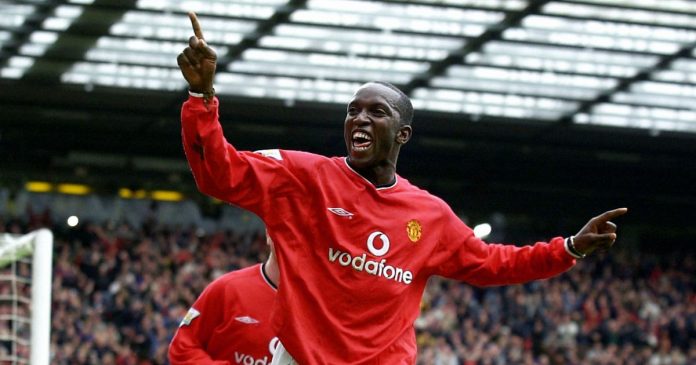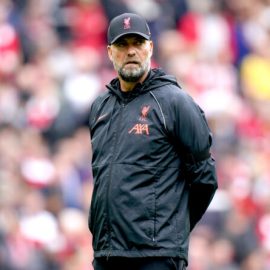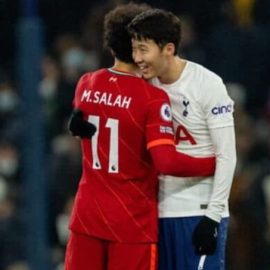In a recent comment on Soccerlens, a reader pointed out that the Premier League had posted the transcript of the West Ham ruling on their website and that one should read it before blindly commenting on the ruling.
Now I know that this is late (the ruling was made on 27th April 2007) and a lot has already been said about final punishment meted out to West Ham. However, I thought it would be negligent to not at least read the full transcript once. I’ve discussed the transcript below along with my opinions on it.
Before I start though, I would like to point out two things:
One, I’m a Manchester United supporter, so no for or against bias here. Actually, I started following West Ham more closely after watching them play last season (2005/2006) and have liked them since.
Two, My initial view on the Tevez issue was that the Commission had been lenient with West Ham and some of the reasons given for not deducting points were whimsical and flimsy.
I’m happy to see West Ham stay up (and I hope that the independent tribunal allows them to stay up) but that’s the football fan in me. The critic disagrees, but I’m open to different arguments, and because of that I wanted to read the full transcript and find out what really happened.
You can download a full copy of the transcript from here (FAPL website).
It would be tedious and repetitive to walk you through the transcript, plus if you want to understand the complete situation you really should take out some time to read it – 6000 words so it shouldn’t take you too long.
Background
It’s important to note that West Ham themselves forwarded the contracts of Carlos Tevez and Javier Mascherano to the FA Premier League towards the end of January 2007. It is quite possible that if they had chosen to do so, they could have found a way to hide from this matter and drag it out even further. While there was always the case that third party ownership would cause problems there was no knowledge of the actual contractual details and because of that no serious case could be made against West Ham without looking at the contracts, and as far as the FAPL knew the contracts did not violate any rules.
The Commission statement also quotes the agreement between member clubs of the Premier League which states that each Chairman of the club members commits themselves to ensure that their clubs inter alia “behave with the utmost good faith and honesty to each other” and “will comply with the laws of the game and follow Premier League Rules, not only to the letter but also to their spirit and will ensure that our clubs and officials are fully aware of such rules”.
In essence, West Ham were, in respect of their FAPL agreement, expected to be fully aware of the rules.
The key characters are West Ham legal and commercial director Mr Scott Duxbury, West Ham CEO Paul Aldridge, FAPL secretary Ms Purdon (responsible for the regulation of the management of players to clubs in the Premiership) and FAPL general secretary, Mr Foster (responsible for player registrations with FAPL). As witness statements go, that of Mr Richard Scudamore, the FAPL chief executive, will be crucial to the proceedings.
Contracts
The crux of the whole argument. Essentially, both contracts (for Tevez and Mascherano) stated that it was up to the third party owners to determine when the player would be transferred away from West Ham, and that West Ham or the player himself had no say in the matter. To make this happen, the third party would have to pay a small sum to West Ham.
West Ham, under Terry Brown (chairman) and Aldridge (CEO) agreed to these terms.
The contracts allowed for the possibility of West Ham’s playing policies to be affected by the third party in four different ways:
A) The third party may be able to determine when and to whom the player may be transferred, which may not coincide with the wishes and interests of the club for whom the player is playing, or the player himself, and thus potentially influence the playing policies of the club.
B) In the event of the third party having a particular transfer in mind, it may seek to influence the playing performance of the player.
C) The third party could prevent a transfer of the player against the interests of the club.
D) The third party could prevent the termination of the player’s contract with the club and against the wishes of the club. The club’s disciplinary control of the player could be affected.
My personal view is that regardless of whether the third parties wished to impact West Ham’s playing policies or not, the clauses that allowed the third parties to solely determine the future of the player were in direct violation of rule U18, which states:
“No club shall enter into a contract which enables any other party to that contract to acquire the ability materially to influence its policies or the performance of its teams in league matches or in any (other) competitions.”
An argument was made that this rule did not apply to the Tevez / Mascherano situation because it did not affect playing terms – however, it did give the third parties the ability to influence the club’s transfer policy, which is covered in the rule above.
So yes, the contracts were illegal under the FAPL agreement. The interesting part here is that Mr Duxbury, legal and commercial director at West Ham, denied knowledge of the U18 rule. That is, in my view, gross misconduct. Ignorance of the law is hardly an excuse. There’s also the case of Paul Aldridge, telling Richard Scudamore that there was nothing wrong with the contracts, but that’s not relevant as it happened after the players had been transfered.
The contractual agreements related to Tevez and Mascherano was extremely interesting, and I’ve posted that full section here.
Knowledge of rule breach
There is some argument (from West Ham’s side) that they were not aware of the rule breach – and that if Mr Duxbury had known of the breach he (and by extension, West Ham) would have done things differently.
Short of calling it bullshit, I don’t know what else to say here. As legal director conducting transfers that clearly involve third parties and are therefore potentially problematic, it was Duxbury’s responsibility to be aware of all rules and regulations relevant to their situation.
At best, Duxbury and Aldridge hid some information from the FAPL. At worst, they openly lied to them. In either case, the rule violations still stand. However, if this matter had been brought to the FAPL’s attention earlier, there’s a good chance that West Ham would not be in the legal mess they found themselves in at the end of the 2006/2007 season.
FA Premier League and the unnecessary delay
The Commission also takes care to protect FAPL by saying that they were assured by West Ham that there were no irregularities and that the FAPL – essentially, Mr Foster, Ms Purdon and Mr Scudamore, believed West Ham (Duxbury and Aldridge).
That remained the position until 24th January 2007. On that date, Mr Igoe, the finance director of West Ham, was informed by the FAPL of a proposed report into third party ownership of footballers. He decided to forward the contracts to the FAPL.
In hindsight the FAPL should have been more vigilant and should have investigated the contracts fully.
According to my understanding, the FAPL had knowledge of the player contracts but not of the agreements made between the third parties and the club, West Ham. In my opinion the Premier League SHOULD have questioned how the players had been brought to West Ham if there had been no agreement between West Ham and any other club (as far as I’m aware, West Ham only signed agreements with the third parties) and if there WAS a deal made with those third parties, then Scudamore should have asked West Ham to share those documents.
The FAPL waited till January 24th before raising the matter again with West Ham. Around 4 1/2 months after that conversation between Scudamore and Aldridge.
In my view, certain individuals in the FA Premier League made grave errors of judgment and are responsible for this matter being resolved in late April and not early on in the season. Could this have affected the Commission’s decision in not giving a points penalty to West Ham?
The Penalty and Reasoning
The Commission decided to award a monetary fine and not a points deduction. They took the following factors into account:
One, the club’s pleas of guilty.
Two, the fact that the club is under new ownership and management. True it is that Mr Duxbury remains, but we are impressed by Mr Sturman’s point that Mr Magnusson could have cynically dispensed with his services so as to reflect more favourably upon the club.
Three, had the club in time made disclosure of the third party contracts to the FAPL, then, in all probability, contracts could have been entered into which would not have offended the Rules. Mr Mascherano is now playing football for Liverpool. He is doing so pursuant to a contract entirely different in form to these contracts, and which has been approved by the FAPL. We have no reason to suspect that the same could not have been achieved with West Ham in August 2006.
Four, there has been a delay between the discovery of these breaches and these proceedings. Whilst that delay is due to no party’s fault, the consequence is that a points deduction, say in January, whilst unwelcome, would have been somewhat easier to bear than a points deduction today which would have consigned the club to certain relegation.
Five, Tevez has continued to play for the club after the discovery of these breaches. The FAPL had the power to have then terminated his registration. For understandable reasons, they did not. Had it not been for these proceedings, the club and the FAPL might have reached a similar situation to that pertaining to Liverpool and Mascherano. Tevez, we note, has played in more games post-24th January than before it.
Six, we have considered the position of the players and the fans. They are in no way to blame for this situation. Of course, if the impact upon players and fans was to be the overriding consideration, there may never be a deduction of points. However, in this case, the fans and the players have been fighting against relegation. They have been doing so from between January and April. They have been so doing against the ever-present threat of a deduction of points. Those efforts and that loyalty would be to no avail were we to now, on what might be termed the eve of the end of the season, to deduct points.
Seven, it was Mr Igoe, thus the club, then under new ownership, who brought attention to these breaches.
The only factor that is credible is the new ownership of West Ham, although that factor is undermined by this:
When Magnusson took over, it’s believable that his advisers would have raised the issue of the two Argentinian players. At this point if Magnusson was lied to, and if at that point his advisers ALSO did not ask to see the third-party agreements, then they too are guilty of negligence.
And if West Ham’s new management was aware of those contracts AND they did not themselves offer that information to the Premier League until the Premier League talked about investigating into third party ownership of footballers, then West Ham’s new management are also guilty of a breach of rule B13.
In my view, the new management was in violation of rule B13. It can be argued that they had, by their inaction, agreed to the ‘invalid’ player contracts. I disagree with that – while the new management should have been more careful and diligent in dealing with the contracts, they cannot be held responsible for agreeing to the contracts.
Conclusion
As I said at the start, I’m biased towards West Ham. I want to see them in the Premiership, and I have no sympathy for a team that threw their Premiership status away on the last day in a home game, nor for a manager and chairman who have whinged so much this season that they came second place behind Jose Mourinho in the whinger’s league (personal opinion – I do respect Sheffield United’s spunk on the field this season though).
The main problem with the ruling is the caveat that if this hearing had happened earlier in the season, or if West Ham were not in a relegation battle, there is a very good chance (almost certain) that West Ham would have had points deducted.
The Premier League were also, directly or indirectly, responsible for delaying these proceedings.
I think the Commission weakened their own arguments considerably by taking into consideration the impact of relegation on the players and the fans. By making the punishment contingent on present circumstances, a precedent has been set for the future.
West Ham’s relegation rivals will argue that the gravity of the situation required that circumstances be ignored and the letter of the law be applied. In that case, West Ham would certainly have had points deducted.
There’s also the argument that this allows clubs to field players illegally and get away with it by paying a fine if they can argue for the right ‘circumstances’.
I don’t think this sets a precedent – deducting points (and thus affecting league standings) is a grave punishment and as such it is necessary to consider the club’s circumstances.
For me, the most convincing factor was the new ownership AND the delays – the first because FAPL did not inquire enough, and the second between seeing the contracts and the conclusion of these proceedings.
The Commission gave the right punishment, but perhaps the FA Premier League needs to be investigated as well – who will they pay the fine to? Shouldn’t Sheffield United be paid compensation by the FAPL?
Post-Commission
At the end, it was ordered that registration of Carlos Tevez be terminated by the FAPL. That date was 27 April. On 28 April, Tevez played for West Ham.
Was a new contract signed with the third parties in time? I think so – the proceedings gave West Ham and the third parties enough time to draft new contracts.
Would MSI agree to a new contract that DID not give them the complete transfer rights of the player? If they had, as I suspect, a gentleman’s agreement in place, or if West Ham have paid MSI a sum, or if any other outside agreement has taken place in which there is no legal, documented evidence that a third party has the ability to influence the club’s policies, then West Ham are legally clear and MSI would be open to signing a new agreement – and I’m sure this would have been drafted in advance.
Of course, it opens the possibility of West Ham employing the same legal stipulations that allowed Liverpool to enter an agreement for Mascherano.
Thank you for taking the time to read this extra-long article 🙂
Add Sportslens to your Google News Feed!






